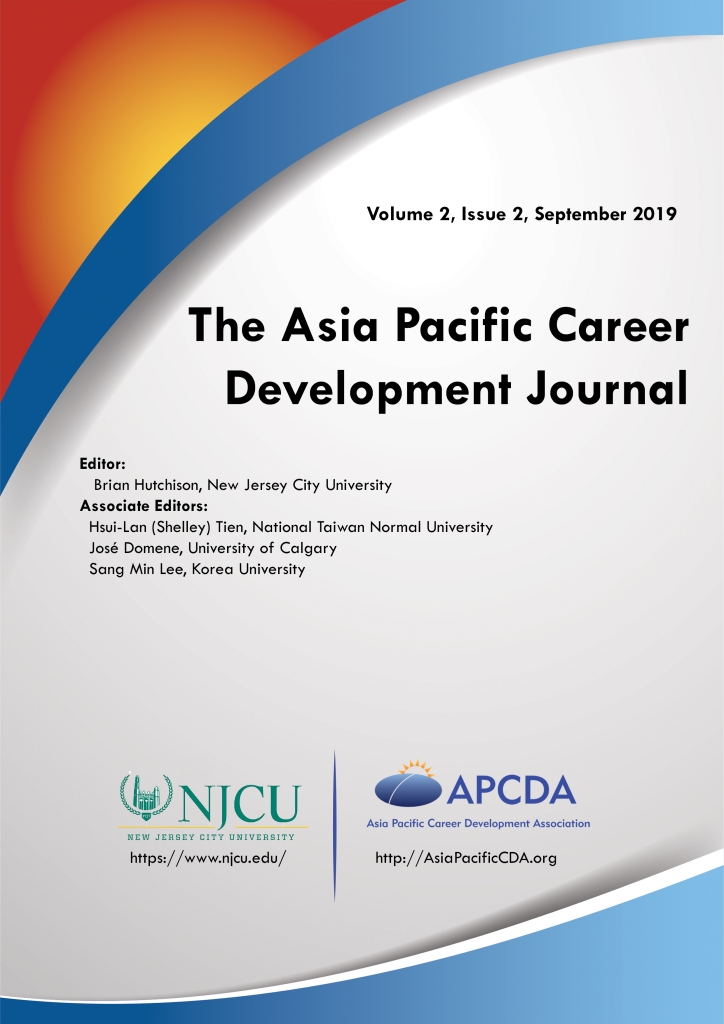The Asia Pacific Career Development Journal, Vol 2, No 2
Vol 2 No 2 (2019): September 2019 Issue
Published: 2019-10-10

Lead Article
Yvonne Kong-Ho, Jeremiah Wong, Andrew Er, Clarissa Hor, Gerald Tan, & James Tan
Abstract: Singapore is currently undergoing economic transformation (MTI, 2018) to keep up with the impact of technology on industries, businesses, and jobs. With the transformation happening rapidly, the Singapore workforce faces challenges in adapting to learn new skills and handling career transitions. Even fresh graduates face skills obsolescence within a mere few years of entering the workforce (The Business Times, 2018). Career practitioners in Singapore are seeing a greater need to help the existing workforce and fresh graduates make sense of these changes – the impact of technology disruptions and how it impacts careers. Through this paper, we want to share with fellow APCDA professionals about the various stakeholders concerned, the service providers available, and the beneficiaries involved within Singapore’s career development scene. This paper was written through the lens of Dr. Roberta Neault’s framework – “It Takes a Village”. It seeks to give readers an understanding of the provision of macro-level career development services as well as the stakeholders who are involved with the career development practice in Singapore
Empirical Articles
Lawrence P.W. Wong, Mantak Yuen, & Gaowei Chen
Abstract: The purpose of this study is to demonstrate how commonly available technological devices can be used to promote the development of career and life planning education practices. The use of technology to enhance career decision making processes has long been documented in career counseling literature; with the advent of the fourth industrial revolution, the use of technologies such as Artificial Intelligence (AI) has become increasingly prominent. However, the use of advanced technology is costly, so it is argued here that it is entirely feasible for career guidance teachers to use existing technology in sustainable and economical ways for the purpose of organizing and disseminating career information. This paper illustrates how, even within a limited financial budget and with staff untrained in technology, schools, colleges, and universities can utilize affordable technology to enhance students’ career path exploration.
Review
Darlene Joy Uy
Abstract: Play has long been recognized as a way to promote learning, creativity, and self-insight. This study investigates the use of a career-oriented board game played with others in person. Results from 11 Singapore-based working professionals who were looking for career direction show that playing a board game in a group setting can be an effective way to brainstorm for possibilities, broaden perspectives, foster individual meaning-making and insight, and promote reflection and self-awareness, thereby creating clarity and confidence in their future career plans. These are important aspects in developing career adaptability and the ability to thrive in a complex, fast-changing world.
